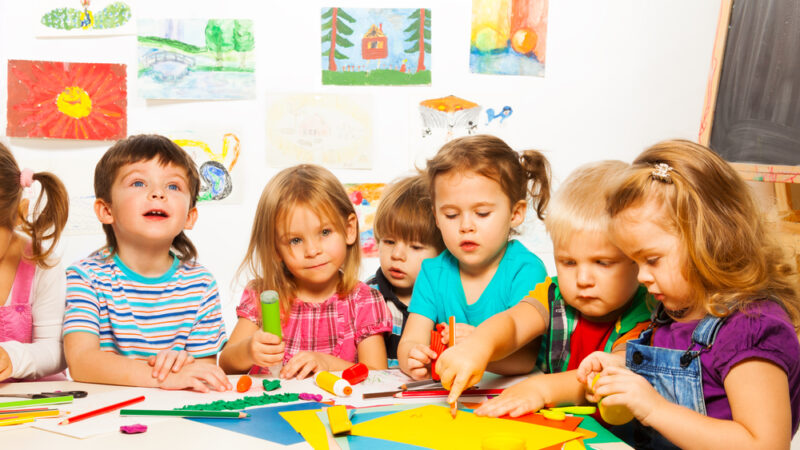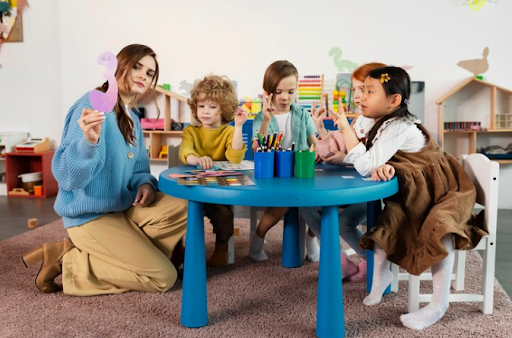Fostering Creativity and Innovation: The Role of Technical Education

In today’s rapidly evolving world, creativity and innovation have become essential skills for success in various fields. As traditional industries transform and new ones emerge, the ability to think creatively and generate innovative ideas has become increasingly valuable. Technical education plays a crucial role in fostering creativity and innovation, equipping students with the necessary knowledge and skills to thrive in a dynamic and competitive landscape. In this article, we will explore the significant role that technical education plays in nurturing creativity and innovation.
Building a Strong Foundation
Technical education provides students with a solid foundation of theoretical knowledge and practical skills in specific fields such as engineering, computer science, and design. This foundation serves as a platform for students to explore and experiment, enabling them to think critically and creatively about real-world problems. By gaining a deep understanding of the underlying principles and concepts in their chosen discipline, students can develop innovative solutions and push the boundaries of what is possible.
Encouraging Problem-Solving Skills
One of the key components of creativity and innovation is the ability to solve complex problems. Technical education fosters this skill by presenting students with challenging scenarios and encouraging them to devise practical solutions. Through hands-on projects, case studies, and collaborative exercises, students learn to analyze problems from multiple angles, think critically, and propose creative solutions. This process not only enhances their problem-solving abilities but also instills a sense of curiosity and a willingness to explore unconventional approaches.
Promoting Interdisciplinary Thinking
Creativity often thrives at the intersection of different disciplines. Technical education encourages interdisciplinary thinking by exposing students to a wide range of subjects and areas of expertise. By integrating knowledge from various fields, students can identify connections and apply concepts from one discipline to another. This cross-pollination of ideas stimulates innovation and allows students to approach problems from fresh perspectives, leading to novel solutions that may not have been apparent through a narrow lens.
Nurturing an Entrepreneurial Mindset
Technical education plays a crucial role in nurturing an entrepreneurial mindset among students. By providing them with practical skills, business acumen, and an understanding of market dynamics, technical education equips students to identify opportunities and transform innovative ideas into tangible products or services. Entrepreneurship thrives on creativity, as it requires individuals to think differently and take calculated risks. Technical education fosters the mindset and skill set necessary for students to become successful innovators and entrepreneurs.
Encouraging Hands-on Learning
Creativity and innovation are best nurtured through hands-on learning experiences. Technical education emphasizes practical application and encourages students to engage in experiential learning. Whether through laboratory experiments, internships, or industry collaborations, students have the opportunity to apply their knowledge in real-world settings, encounter practical challenges, and find innovative solutions. This hands-on approach enhances their problem-solving abilities, sparks creativity, and instills a sense of confidence in their ability to tackle complex problems.
Embracing Emerging Technologies
Innovation often goes hand in hand with emerging technologies. Technical education equips students with the knowledge and skills to leverage these technologies effectively. Whether it is artificial intelligence, robotics, data analytics, or 3D printing, students are exposed to the latest advancements and encouraged to explore their potential applications joinpd.com is a platform online that offers both free and paid classes for entrepreneurs, professionals, and students. By staying abreast of technological advancements, students are better prepared to contribute to the ongoing innovation in their respective fields.
Collaboration and Networking Opportunities
Technical education provides students with ample opportunities for collaboration and networking, both within their institutions and with industry professionals. Collaborative projects, team-based assignments, and participation in technical competitions foster an environment that encourages the exchange of ideas and the cultivation of innovative thinking. Additionally, technical education institutions often facilitate interactions with industry experts through guest lectures, workshops, and internships, allowing students to gain insights from experienced professionals and broaden their perspectives.
Conclusion
In an increasingly In an increasingly competitive and dynamic world, fostering creativity and innovation is paramount, and technical education plays a crucial role in equipping students with the knowledge, skills, and mindset necessary to thrive and make a meaningful impact in their chosen fields.Top of Form






